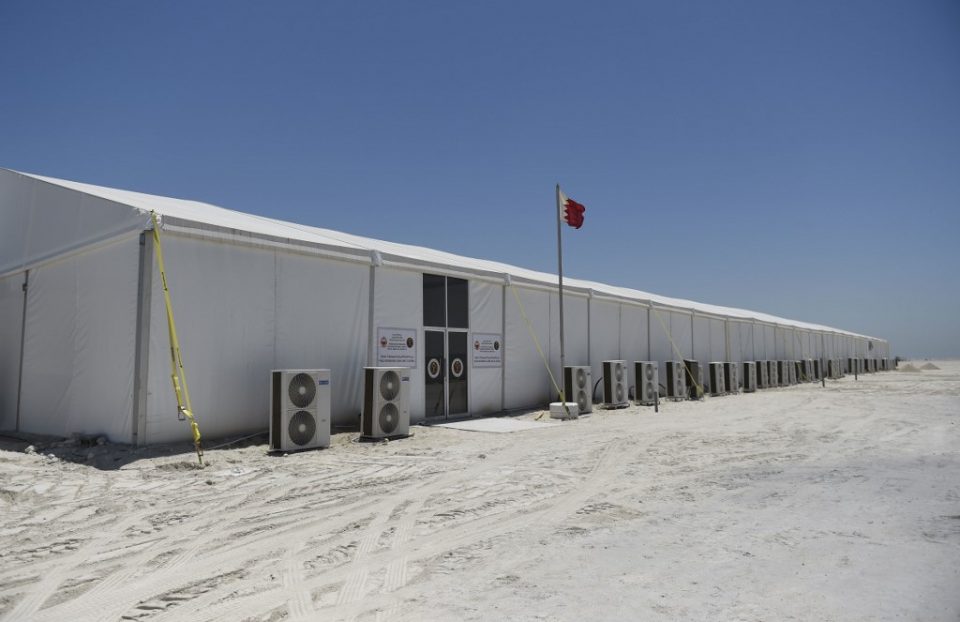
MANAMA, Bahrain (AFP) — After turning a car park into an intensive care unit for coronavirus patients, Bahrain has set up its second field hospital — on a man-made island.
The facilities are among five that the authorities plan to build to add 500 critical care beds to its health sector in case of a spike in novel coronavirus.
The new 154-bed field hospital, staffed by 55 doctors and 250 nurses, took 14 days to build and adjoins a quarantine camp.
Its large white tents house rows of hospital beds as well as a laboratory, pharmacy and X-ray machines.
Located off the Gulf state’s east coast, it is the first crisis facility set up far from a hospital.
“This is done as a precautionary measure for COVID-19 patients in case they need to have ventilation and then ICU healthcare,” Dr Nayef Louri told reporters at the facility.
A fenced gate guarded by two police cars provides the only access to a dirt road that leads to the island that has been earmarked for development projects.
Last month, Bahrain opened its first field hospital, converting a car park outside the Bahrain Defence Force Hospital near Manama into an intensive care unit with 130 beds.
The Gulf country, whose population stands at 1.5 million, has recorded more than 3,300 cases of coronavirus, with eight deaths.
Shaikh Khalid bin Ali Al-Khalifa, commander of Bahrain Royal Medical Services, said most of the cases currently were among the community of foreign workers.
Being in a low-risk group, few had required intensive care, he said.
However, the other field hospitals on the drawing board would be rolled out if the current extra facilities reached 50 percent occupancy.
“It is better to be safe than sorry,” he told reporters.
© Agence France-Presse







